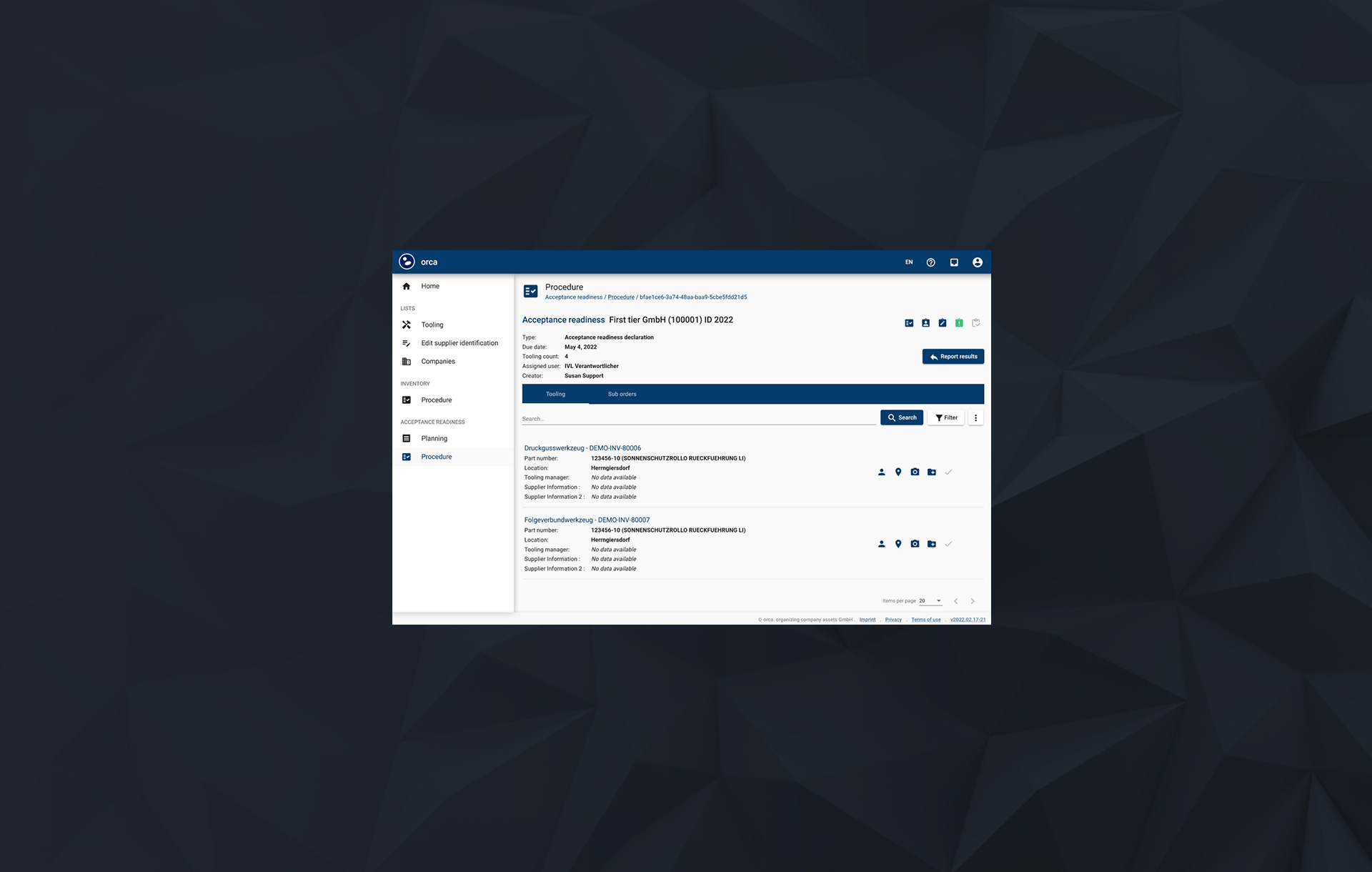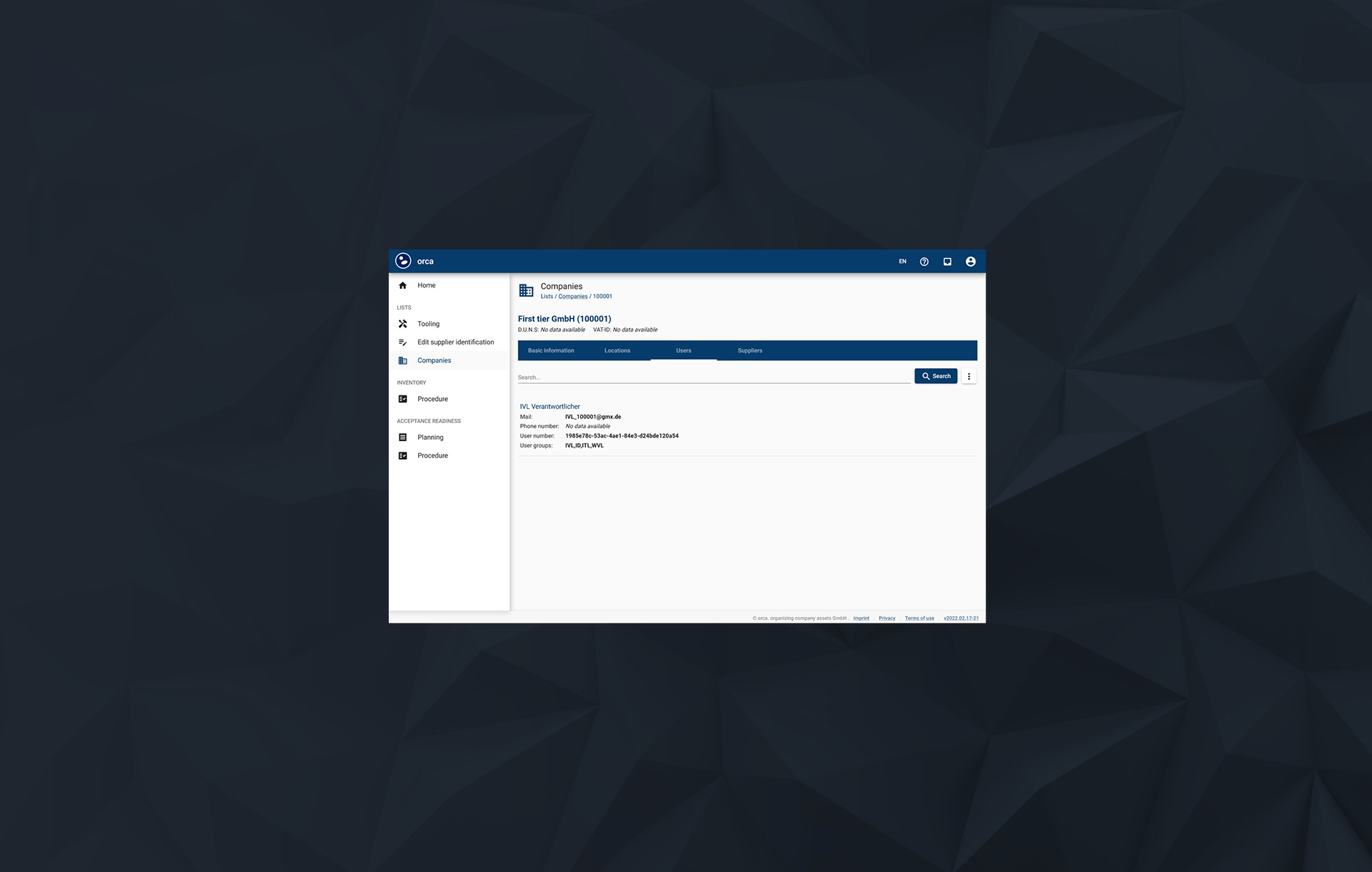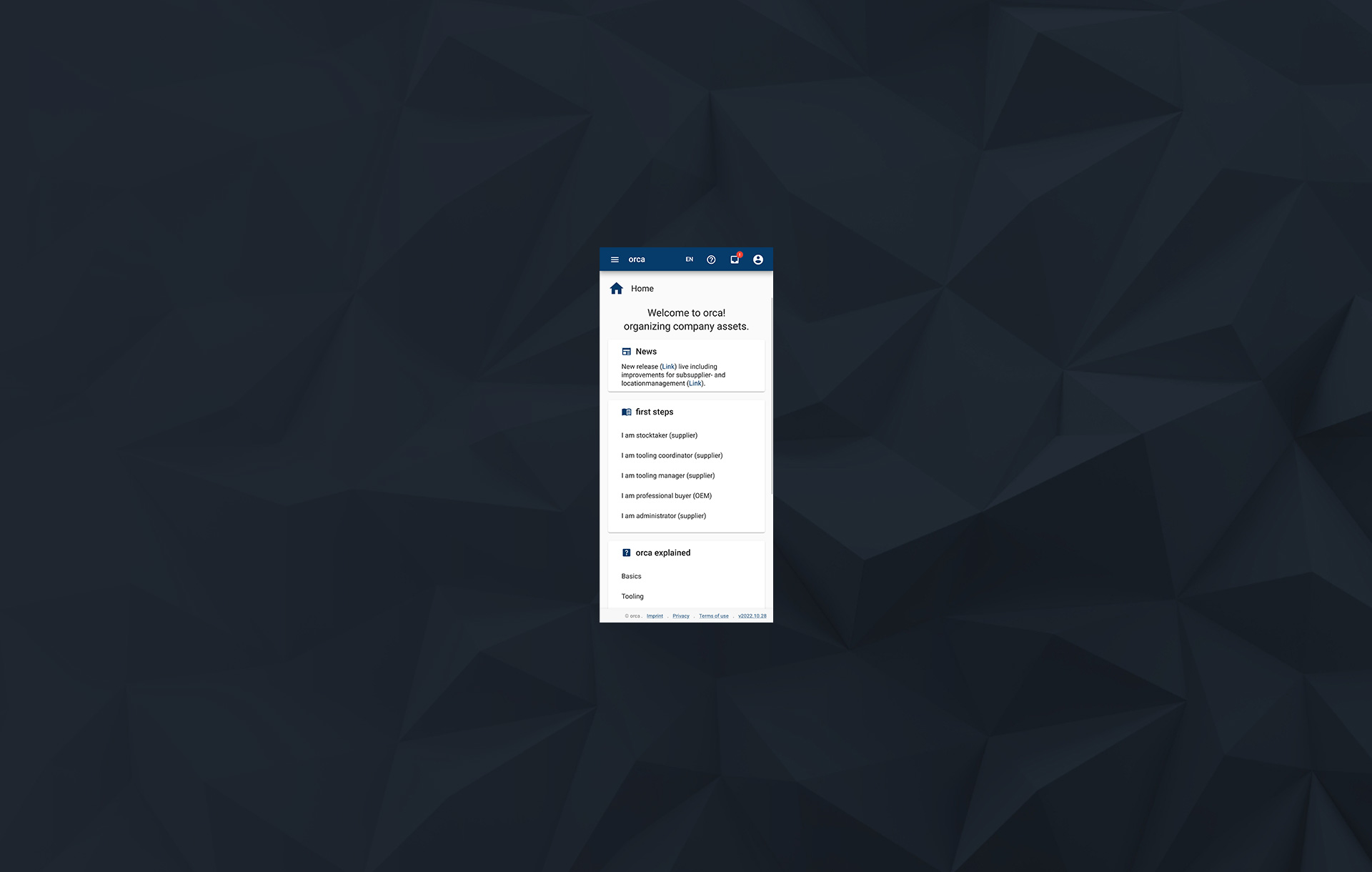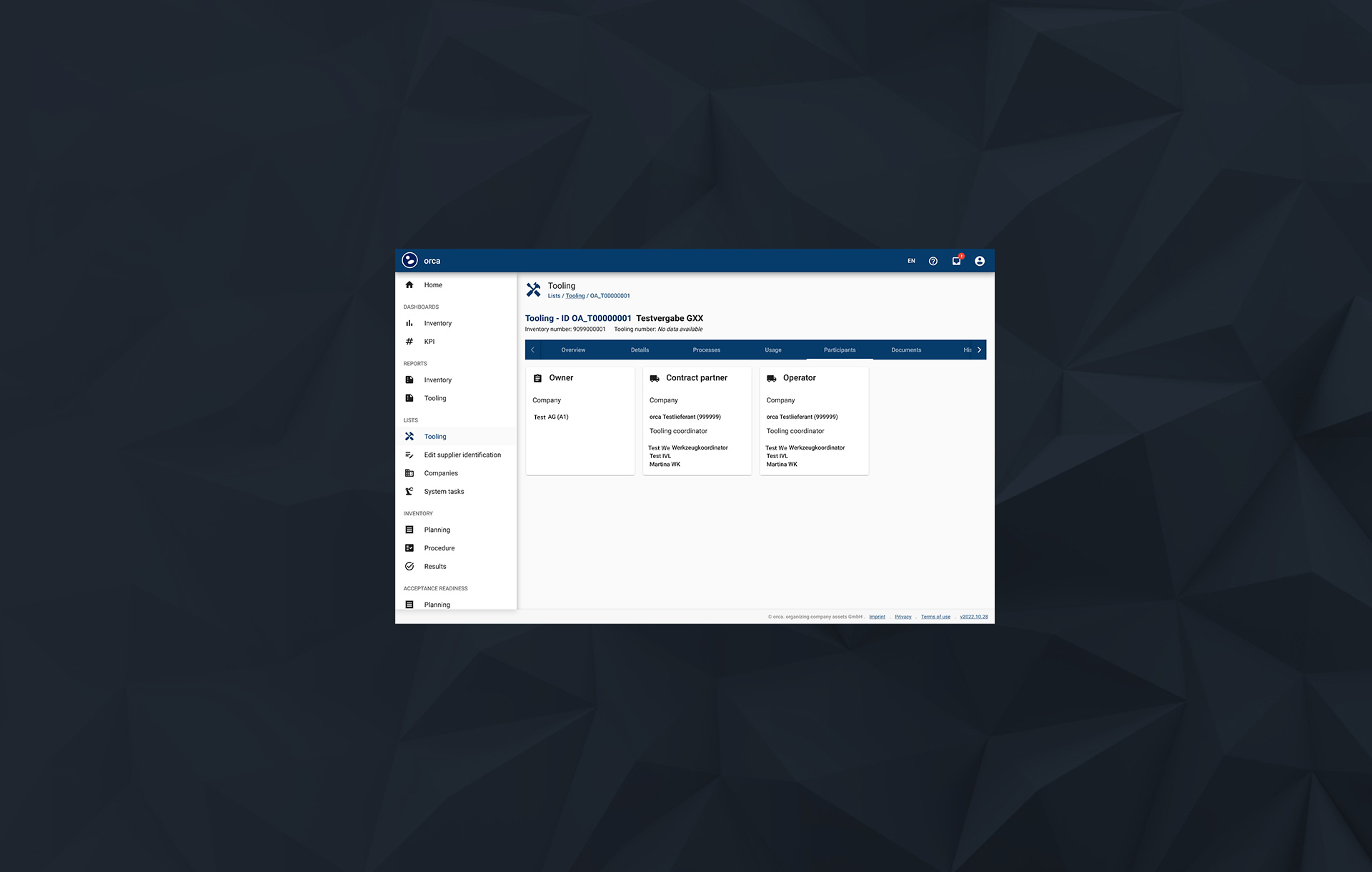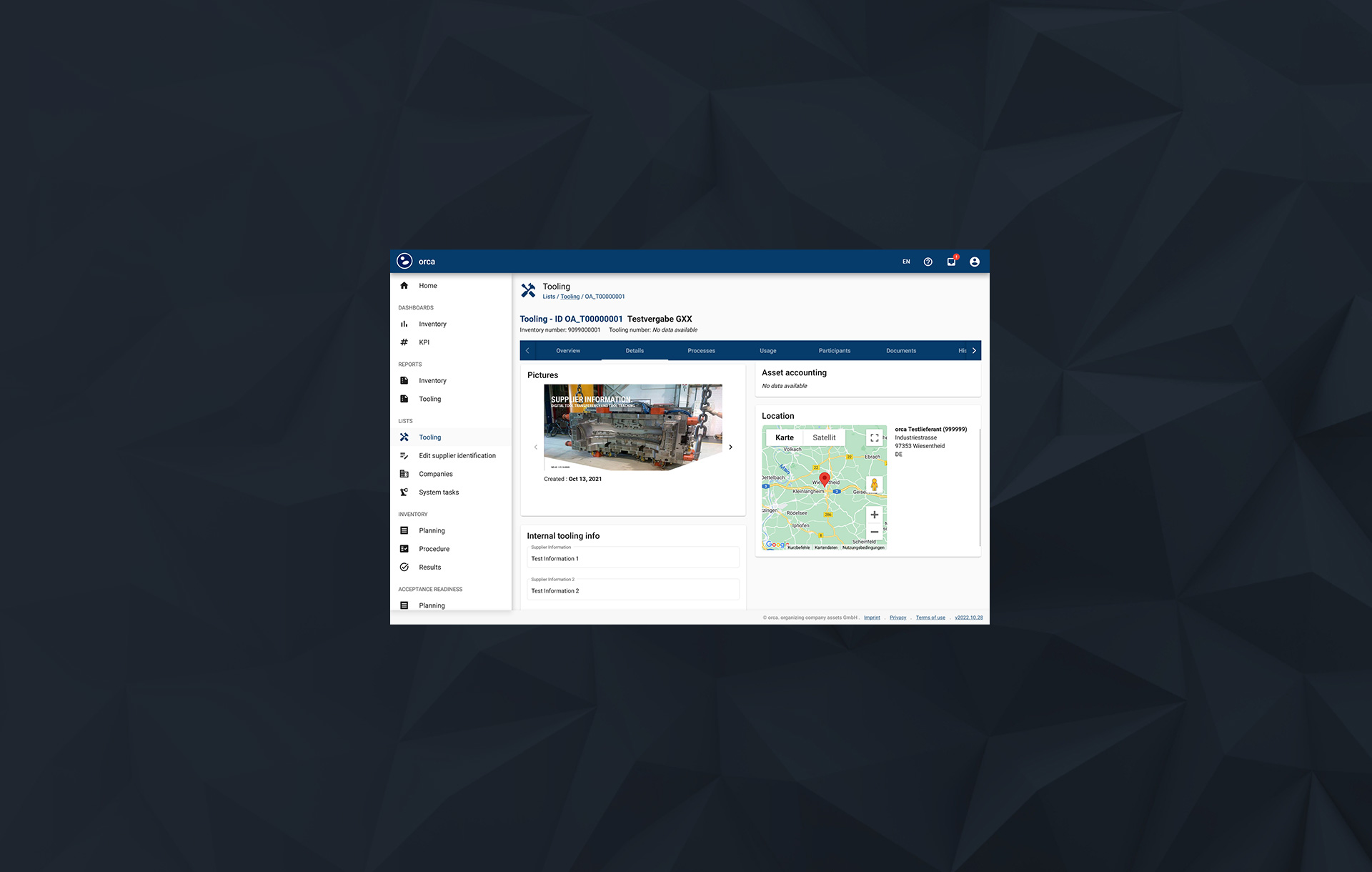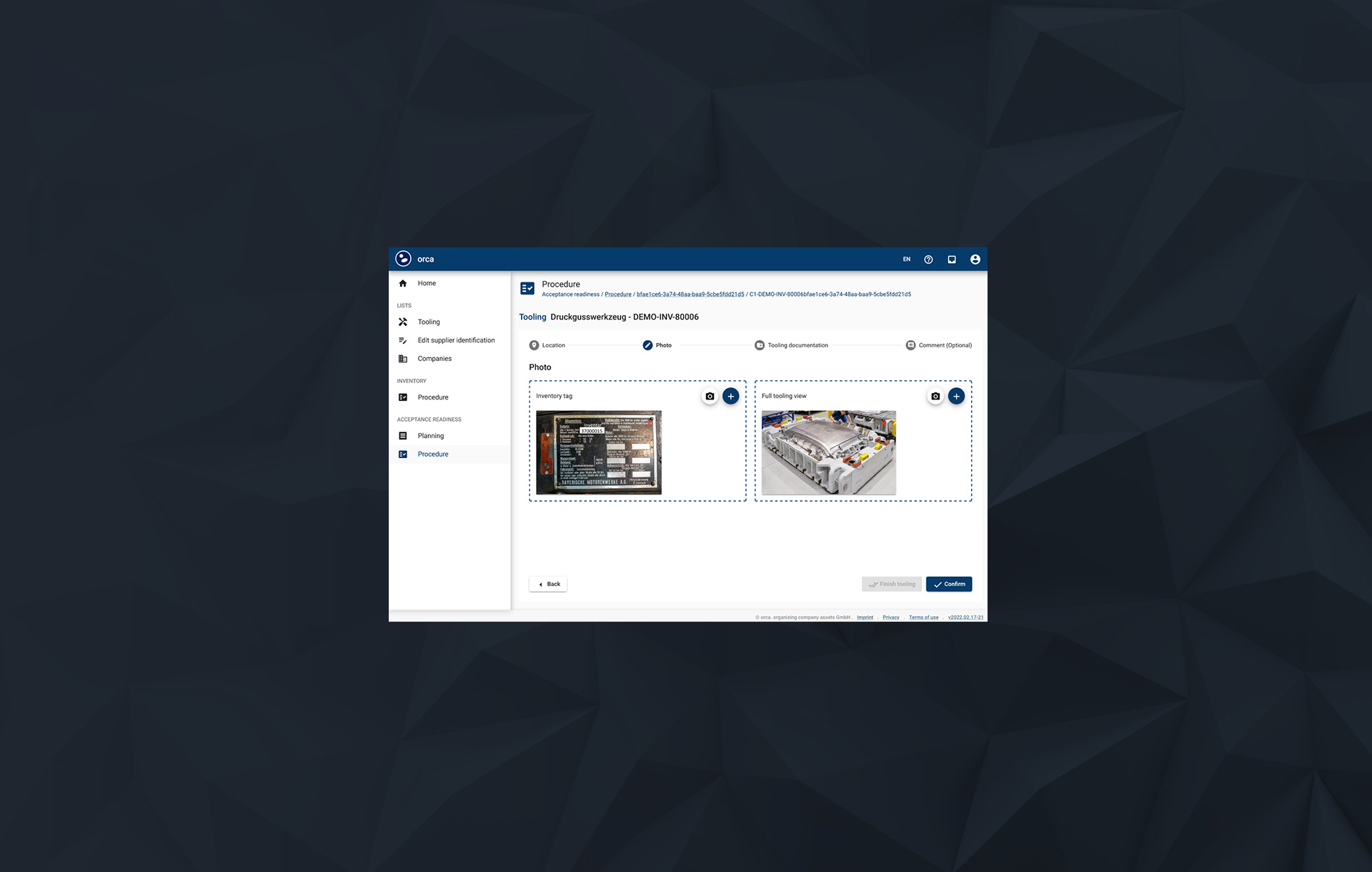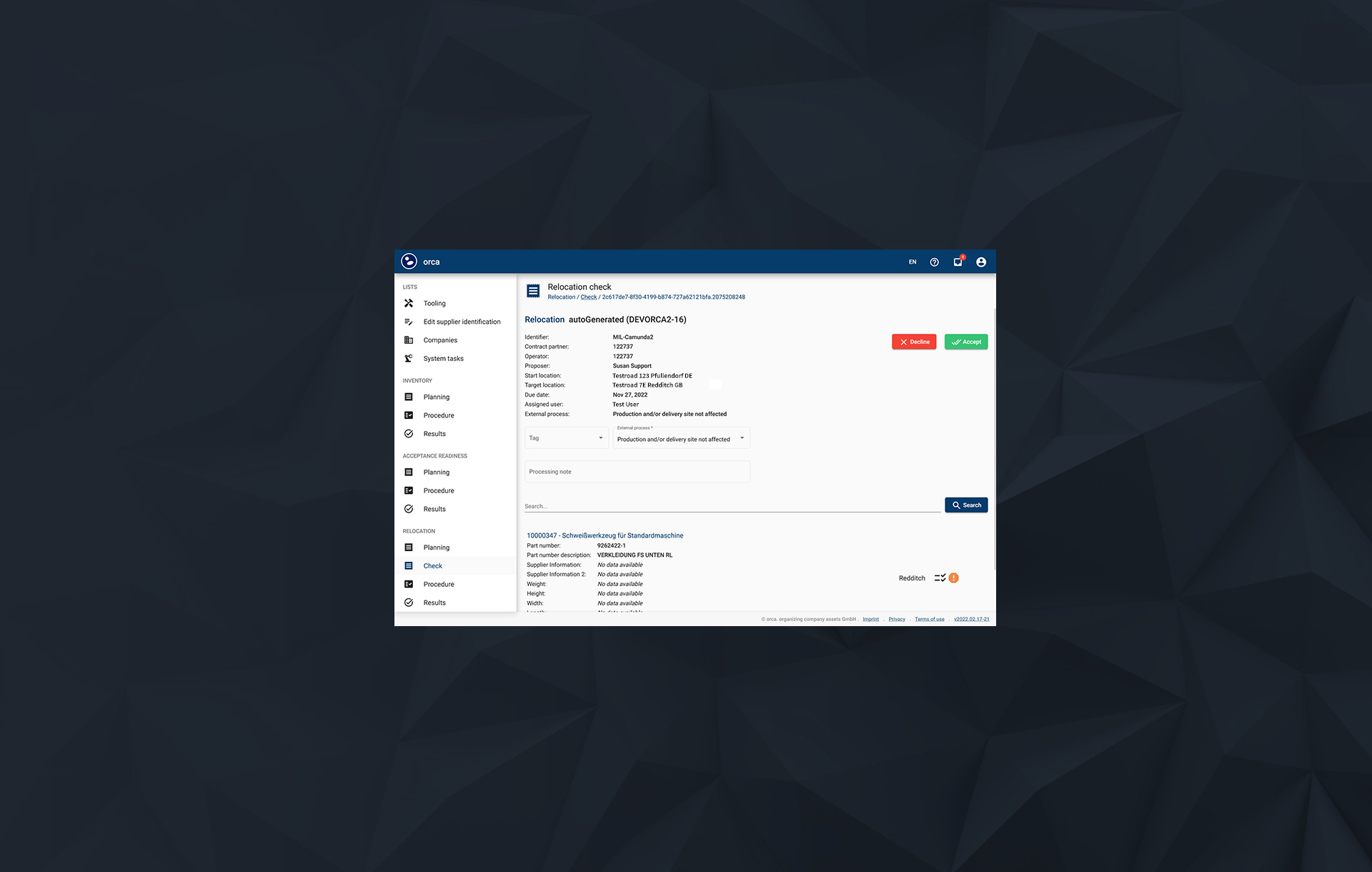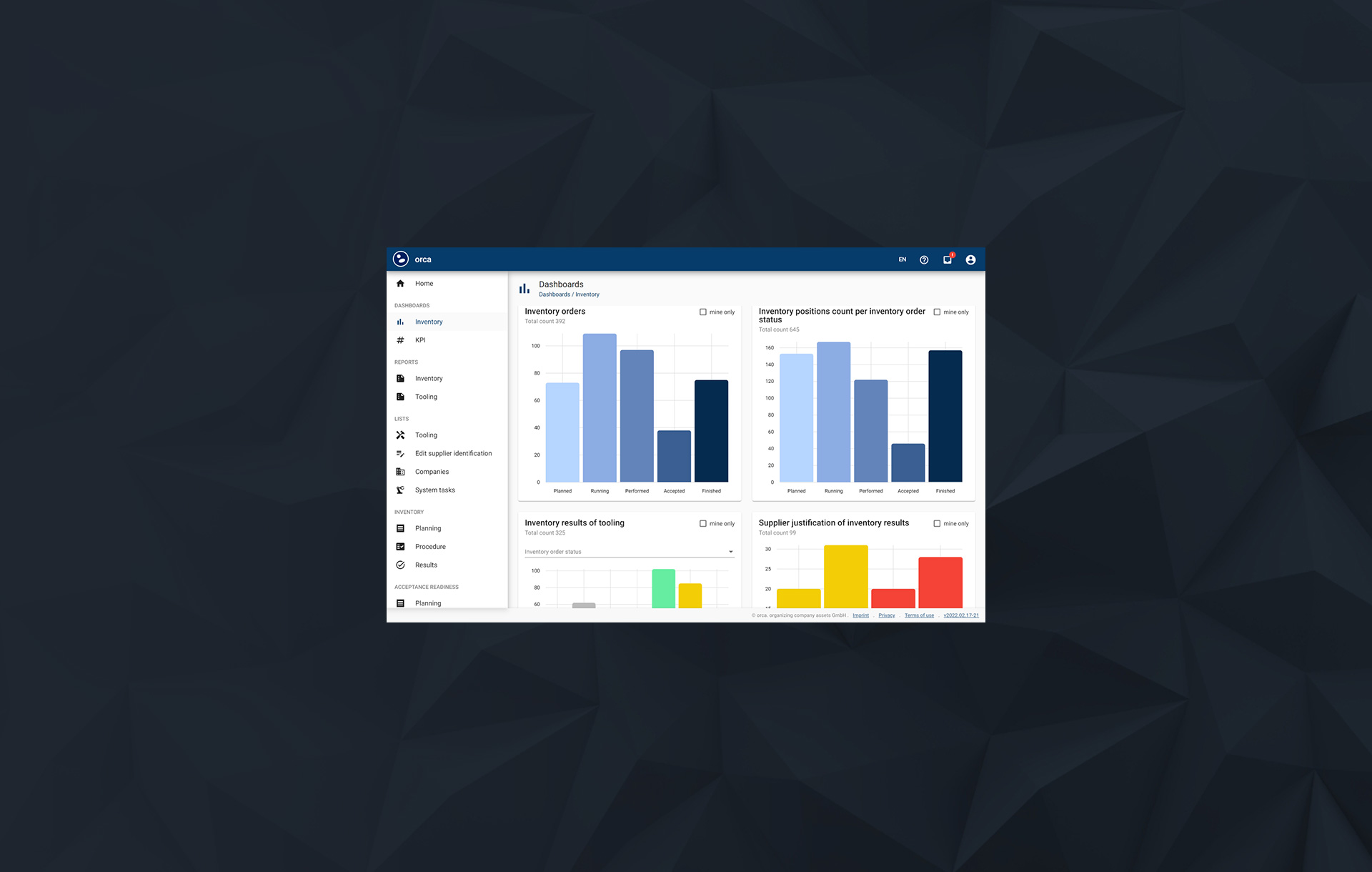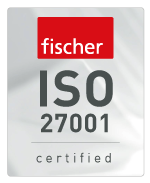"Sherlock has proven itself as the basis for orca and I would make the decision for Fischer as a partner again. The struggle for the best solution and the high quality distinguish Fischer. The journey has only just begun, I am glad to have Fischer on board."
Burkhard Grosche
Managing partner of orca
Supply chain tooling presents significant challenges to every OEM and to suppliers. Supplier tools are subject to inventory obligations. This is difficult to impossible to fulfill by traditional means, not to mention the effort involved. In addition, the VAT requirements of the country of location are relevant for acceptance and relocation, and the considerable resulting complexity cannot be adequately addressed without automation. To meet these challenges, orca was founded. As a standard solution for OEMs and suppliers, because these issues are always similar. The resulting solution is already in use at a major automotive manufacturer.
Traditional IT approaches are not suitable for the millions of objects and links in orca. Orca therefore runs on the basis of Fischer's Sherlock data management platform. Sherlock is a SaaS solution based on a graph database to which asset accounting, purchasing, quality management, finance and maintenance systems are connected via REST API using standardized processes. Through Sherlock, the tool data of additional OEMs and suppliers are available on orca in a very short time.
If 10% of the tools cannot be found during an inventory, this can jeopardize the annual profit, as they would have to be written off.
If tools have been moved to another country and are not traceable, this can lead to sales tax and compliance issues. The auditor's certification could be restricted. The solution approach is thus clear: tools worth several billion euros must be able to be managed transparently. With the orca platform, this can be done intuitively across the entire supply chain.

